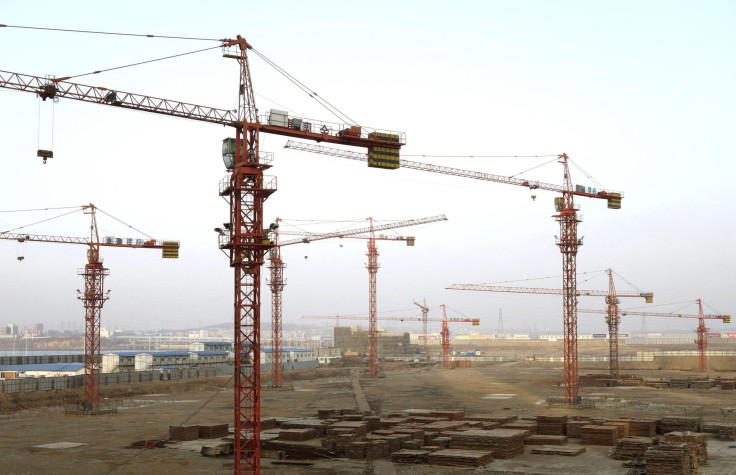China Announces Tax Breaks And Subsidies To Boost Employment, Agriculture As Growth Slows

SHANGHAI -- The Chinese government on Friday announced tax breaks and other measures aimed at creating jobs and promoting entrepreneurship, as the country seeks to boost economic growth, which slowed to 7 percent in the first quarter of 2015, its slowest rate in six years.
A circular published by China’s cabinet, the State Council, on Friday -- the country’s Labor Day holiday -- acknowledged that China faced “pressure in creating more jobs." It said the nation needed to implement “more pro-active employment policies,” according to the official Xinhua news agency. The circular said the government should encourage “mass entrepreneurship and startups, so as to foster a new engine of economic growth.” Separately, the Communist Party’s ruling Politburo also called on Friday for increased public spending and further tax cuts, though it did not go into detail.
The State Council pledged easier access to loans for start-ups and small enterprises, along with tax breaks for migrant workers who want to set up businesses in their home towns, and incentives for university graduates to work in less developed parts of the country, according to Reuters. It offered tax breaks to businesses that employ people who had been jobless for more than six months (compared to one year under previous policies) and it said companies that created significant numbers of jobs would receive priority in bids for large-scale projects.
China’s registered unemployment rate is relatively low, standing at 4.05 per cent at the end of March. However the government has acknowledged it faces what Xinhua called a "complex and arduous" task of ensuring employment against the backdrop of an economic slowdown; its official unemployment target this year is 4.5 per cent. The government has also pledged to create more than 10 million urban jobs in 2015.
Yet with export growth slowing the authorities have said that the economy will need new areas of growth. Earlier this week they promised to cut import tariffs on many popular consumer goods, in an attempt to promote domestic spending. Yet some economists have long called for further tax cuts -- including to personal income tax and welfare contributions to encourage more spending.
Premier Li Keqiang said in his annual report to China’s legislature in March that the nation needed to focus on promoting popular entrepreneurship and mass innovation, which he described as "twin engines" of economic growth.
In January, the government set up a 40 billion yuan fund to support emerging sectors of the economy. Xinhua reported recently that the number of newly-registered firms in the tertiary industry rose 41 percent to 677,000, in the first quarter, accounting for around 80 percent of new companies. Investors are reported to be planning to invest $56 billion in tech start-ups alone, according to China's Ministry of Science and Technology.
However, many analysts say it has remained hard for small enterprises to get funding from banks, and the Communist Party’s ruling Politburo said on Thursday that the focus of its “proactive fiscal policy” should be on “guiding money flow to the real economy,” Xinhua reported.
Yuan Gangming, a researcher at Tsinghua University, said the new approach was timely, since the government’s recent steps to ease monetary policy had yet to offer adequate support to the economy: “Real interest rates remain too high [and] Funding remains too tight,” he told the South China Morning Post.
Separately the government pledged increased agricultural subsidies to boost economic modernization in the countryside. The Ministry of Agriculture announced on Thursday that it would set aside 14 billion yuan (US$2.26 billion) in subsidies to grain farmers, with another $3.3 billion to promote good crop varieties and $3.7 billion to promote grain farming by large scale family farms and cooperative societies.
In further evidence of the government’s sense of the urgency of modernizing many aspects of China's economy to cope with the increasing challenges of global and domestic slowdown, the State Council this week also announced measures to speed up the approval of new policies. Premier Li Keqiang has complained on several recent occasions that officials have been too slow to put policies into action -- now the State Council has ordered ministries to issue new policies within seven to 10 days of their being approved by the Cabinet.
Some indicators back the government's claim that the economy is making progress: China’s manufacturing PMI, an indicator of demand for its goods, remained steady at 50.1 in April. But in further sign of the pressures on the economy, China's largest residential property developer, Vanke, said its first-quarter core profits fell 58.9 percent, year-on-year. However the company said it expected to see growth over the course of the year as a whole, as the government’s recent steps to make housing loans more accessible take effect.
© Copyright IBTimes 2024. All rights reserved.





















